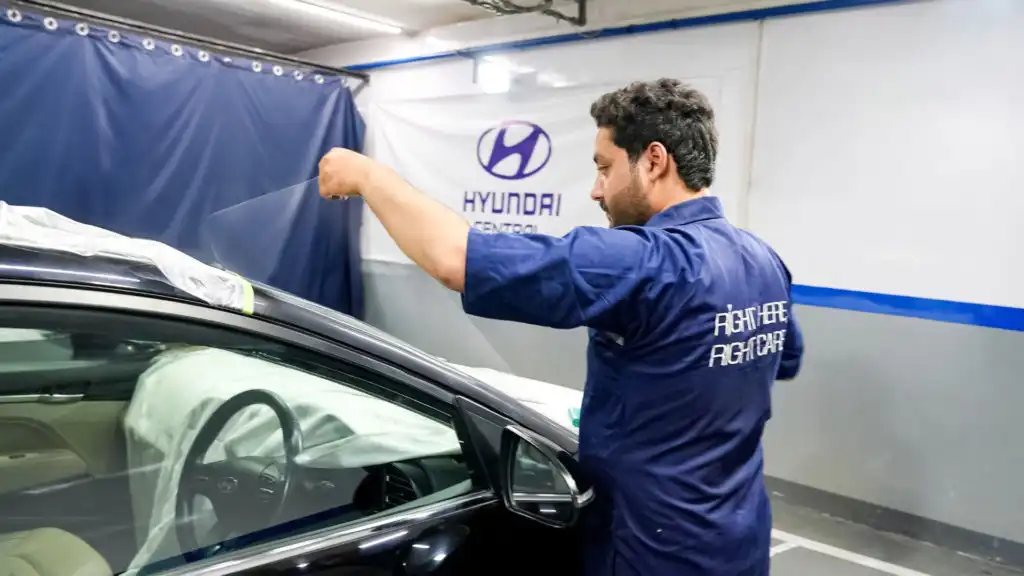According to foreign media reports, last summer Hyundai was developing “Nano Cooling Film”, which is called a revolutionary thermal insulation paper and claims to have better cooling performance than today’s materials. In order to demonstrate the performance of this cooling film, Hyundai selected 70 vehicles in Pakistan. The brand pointed out that local summer temperatures can reach as high as 50 degrees Celsius, and the use of traditional insulation paper is prohibited for safety reasons.

While testing in Pakistan has just begun, Hyundai said previous testing found a 10.98 degree Celsius reduction in temperatures near the driver’s head when compared to traditional tinted insulation paper. The maximum temperature dropped by 12.33 degrees Celsius. As for the dashboard in the car, which is most exposed to the sun, compared with the colored insulation paper, the temperature dropped by 15.38 degrees Celsius, and 22°C lower than the same vehicle without tinting. It is obvious that the film material in the experiment is indeed has better thermal insulation performance.
Advertisement
The latest test is to ensure the quality of the cooling film and its performance in actual applications. This is likely to be the final test because Hyundai said it expects to go into mass production in the future. However, they currently do not have an accurate production schedule, but they said that through research on infrared wavelengths, they can not only block the heat energy outside the car, but also allow the heat inside the car to escape.

Hyundai also pointed out that the cooling film can be colored like traditional insulation paper, so that the vehicle will not be completely transparent. After hearing this news, many European consumers may choose to avoid dark-colored insulation paper, while also keeping the car cool in summer and ensuring driving visibility. However, judging from the way thermal insulation paper is used in China, the performance of thermal insulation coefficient does not seem to be important to some consumers. Color and “privacy” may be what they value.
